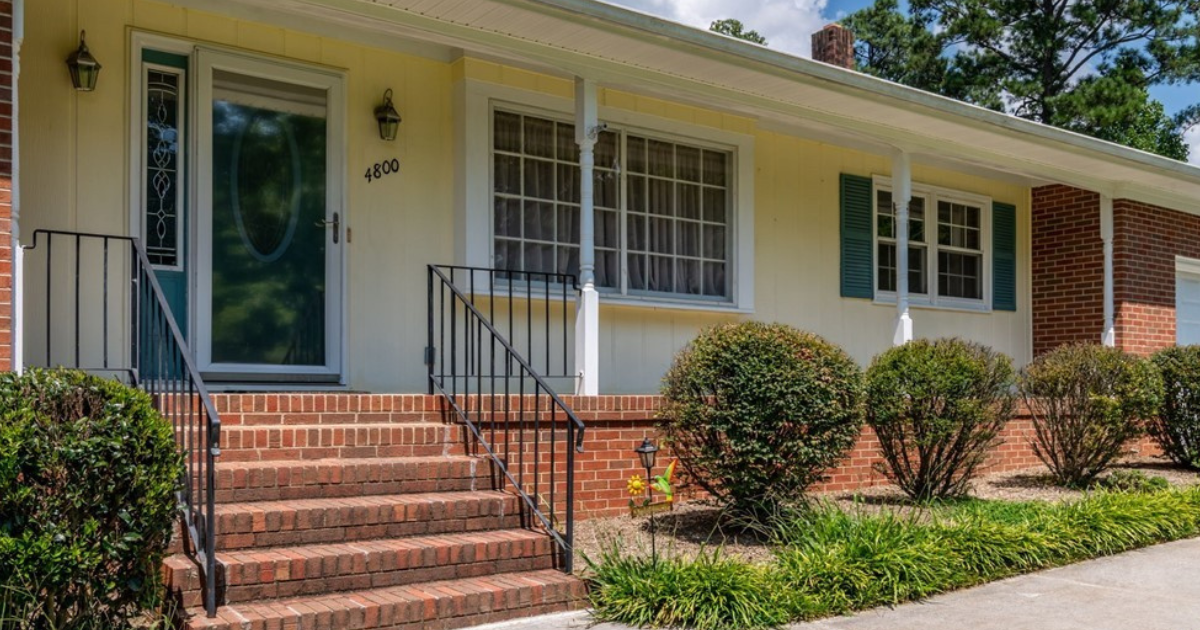Refinancing your mortgage can seem like a smart way to lower your rate, tap into equity, or shed private mortgage insurance. But ask almost anyone who’s refinanced before, and you’ll hear the same thing: it wasn’t cheap.
While interest rates usually get the spotlight, it’s the closing costs that quietly take a chunk out of your equity—or your wallet. In fact, the average cost to refinance a mortgage in the U.S. ranges from 2% to 6% of your loan amount, according to industry estimates. On a $300,000 loan, that’s anywhere from $6,000 to $18,000.
But here's the thing: you don’t have to pay any of it.
At CapCenter, we’ve been offering ZERO Closing Cost refinance loans for over 27 years. It’s what we’re known for—and it’s how we’ve helped thousands of homeowners refinance without the painful price tag.
Let’s unpack what goes into the typical cost of refinancing, why those fees add up fast, and how refinancing with CapCenter could save you thousands.
What Are the Typical Closing Costs for a Refinance?
When you refinance your home, you're essentially taking out a brand new mortgage to replace your current one. That means you’re starting the process over—and with it comes a fresh set of fees, many of which mirror the costs from your original loan.
Here are some of the most common refinance closing costs you’ll typically encounter:
- Loan Origination Fees: Charged by the lender for processing your new loan—typically 0.5% to 1% of your loan amount.
- Appraisal Fee: Lenders often require a new appraisal to confirm the property’s value. This alone can cost $500–$750.
- Title Search and Title Insurance: Even though you already own the home, a refinance still triggers a title update and insurance. Expect around $700–$1,500 depending on your state.
- Credit Report Fee: Usually around $30–$50.
- Flood Certification Fee: Verifies whether your home is in a flood zone—around $10–$20.
- Recording Fees: Charged by the county to record your new mortgage—varies by locality, typically around $100–$250.
- Attorney or Settlement Fees: Some states require an attorney to handle the closing. These can add $500–$1,500+ to your costs.
- Escrow and Prepaid Items: You may need to fund your escrow account for property taxes and insurance, plus pay interest from the day you close until the end of that month.
All said and done, it’s not unusual for a homeowner to pay $5,000 or more out of pocket—or have it rolled into their loan, which can cost more over time.
Why Refinancing Costs Add Up Fast
What surprises most borrowers is that many of these fees aren’t negotiable. Some are state-mandated, some are baked into industry practices, and some lenders mark them up as a source of revenue.
Even small fees add up when bundled together. And unless you read your Loan Estimate carefully, you might not realize how much you’re really paying until you get to the closing table.
Worse yet, if you roll those costs into your new loan (which many people do), you’ll be paying interest on them for the life of your mortgage. A $6,000 cost on a 30-year mortgage at 6.5% becomes $13,680 when paid over time.
So… How Much Will You Pay to Refinance?
Let’s look at two real-world examples to illustrate the difference:
Scenario A: Traditional Refinance
Loan amount: $325,000
Refinance rate: 6.5%
Closing costs: $8,000
New loan amount (after rolling in closing costs): $333,000
Monthly payment (P&I): $2,104
Total interest over 30 years: $426,348
Scenario B: CapCenter ZERO Closing Cost Refinance
Loan amount: $325,000
Refinance rate: 6.5%
Closing costs: $0
New loan amount: $325,000
Monthly payment (P&I): $2,054
Total interest over 30 years: $415,556
Total savings:
- $50/month lower payment
- $10,792 less paid in interest over the life of the loan
- $8,000 saved up front
That’s the power of not paying closing costs—and exactly why so many homeowners refinance through CapCenter.
What Makes CapCenter Different?
Most lenders say “no lender fees” and then hit you with third-party costs like the appraisal, title, and settlement fees. At CapCenter, ZERO Closing Costs means ZERO Closing Costs.
We cover all typical refinancing fees—without raising your interest rate to hide the cost. That includes:
- Appraisal
- Title work
- Settlement/attorney fees
- Credit report
- Flood cert
- Recording fees
- Overnight document shipping
- Lender underwriting
- Loan origination
You won’t pay them out of pocket. We don’t roll them into your loan. And we don’t sneak them in with a higher interest rate.
We simply absorb those costs as part of doing business—a choice we made nearly three decades ago to give our clients a better way to refinance.
Are There Any Refinance Costs You’ll Still Need to Pay?
There are two types of expenses that might still come up, depending on your situation:
1. Escrow Account Deposits & Prepaid Items
If your new lender needs to set up an escrow account to pay your property taxes and insurance, you’ll need to fund it at closing. This isn’t a fee—it's your money going into a reserve account.
2. Payoff-Related Interest or Fees
Your current lender might require you to pay a few days of interest or a small processing fee to close out your old mortgage. Again, this isn’t a refinance “fee,” but it can appear on the final settlement statement.
CapCenter doesn’t control those, but we do our best to estimate them accurately up front so there are no surprises at closing.
Is a Zero Closing Cost Refinance Always the Best Option?
In most cases, yes—but it depends on your goals.
Here’s when ZERO Closing Cost refinancing makes the most sense:
- You’re planning to sell or refinance again in the next 5–10 years
- You don’t want to drain your savings to refinance
- You want to start saving money immediately
- You’ve already built equity and don’t want to erode it by rolling in fees
- You’re looking to lower your rate, consolidate debt, or cash out equity efficiently
There may be rare cases where paying costs in exchange for a lower rate makes sense—especially if you’re staying in the home long-term and the savings are significant. But that’s a calculation we’ll walk you through openly.
Our goal is to help you make a smart, informed decision. Always.
The Bottom Line: Refinancing Doesn’t Have to Be Expensive
Refinancing your mortgage can be a powerful financial move—but the cost can easily eat up the benefit if you’re not careful. Most lenders charge thousands in closing costs, often hidden in fine print or rolled into your new loan amount.
CapCenter takes a different approach. We eliminate the guesswork, the closing costs, and the sticker shock. With a ZERO Closing Cost Refinance, you can keep more of your equity, lower your monthly payments, and start saving from day one.
Refinancing isn’t free—but with CapCenter, it actually can be.
Ready to Refinance Smarter?
Whether you’re lowering your rate, cashing out equity, or just want to ditch PMI, start your journey with CapCenter.
✅ Check your home value
✅ Calculate your new mortgage payment
✅ Get started on your refinance
We’re here to make it simple, transparent, and cost-free.
FAQs: Refinancing Costs Explained
Q: Why do most lenders charge closing costs for a refinance?
A: Many lenders use closing costs to cover their expenses and generate profit—often through origination fees or marked-up third-party services. CapCenter chooses to absorb those costs instead.
Q: Does CapCenter increase the interest rate to offset the lack of closing costs?
A: No. Our rates are competitive and transparent. We don’t raise rates to “hide” the cost—we simply don’t charge those fees to begin with.
Q: Are there any catches with CapCenter’s ZERO Closing Cost refinance?
A: No catches. We cover the standard closing costs. You’ll still need to fund your escrow account or pay off interest from your previous loan, but that’s your money—not a fee.
Q: Is now a good time to refinance?
A: That depends on your current rate, loan balance, and financial goals. Use our mortgage calculator or talk with a CapCenter team member for a personalized assessment.




